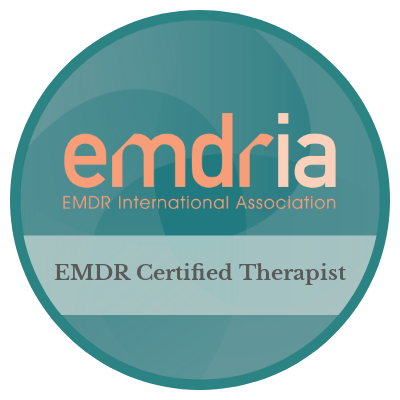What therapy is best for trauma or PTSD?
Our brains have a natural way to recover from traumatic events, but in many these memories get stored in the brain differently and get locked in the nervous system with the original picture, sounds, thoughts, and feelings. One therapy – EMDR (Eye Movement Desensitization and Reprocessing) – seems to unlock the nervous system and allows the brain to process the experience that it couldn’t process at the time. That may be what is happening in REM sleep – the rapid eye movements may help to process unconscious material.
You may have personally experienced a traumatic memory resolving spontaneously with time. Yet others may not be processed without help. Stress responses are part of our natural fight, flight, or freeze instincts. When distress from a disturbing event remains, the upsetting images, thoughts, and emotions may create feelings of overwhelm, of being back in that moment, or of being “frozen in time.” EMDR therapy helps the brain process these memories and allows normal healing to resume. The experience is still remembered, but the fight, flight, or freeze response from the original event is resolved.
Watch this video on EMDR by EMDR International Association (EMDRIA).
EMDR can also be used for events that may not be seen as ‘traumatic’ in the traditional sense, but that have a corrosive effect on a person (such as a history of a lot of teasing in school, or ongoing childhood illness). Usually these experiences can be very damaging to self-esteem, such as when someone forms negative beliefs about themselves or their environment as a part of that experience (examples include: “I should have been able to stop it,” It’s all my fault,” “I’m crazy,” “the world is not a safe place,” “I can’t trust other people,” or “I always attract bad things to me.”). EMDR seeks to ‘unlock’ these traumatic memories and allows the client undergoing this form of treatment to move towards healthy resolution and closure.
So, we have both capital ‘T’ or small ‘t’ traumas. Whatever type of trauma, EMDR can help you recognize and work on feelings and thoughts that come up when you think of the trauma and help you think differently about yourself in relation to the negative experiences.
Christina Clapperton, EMDR therapist, is accepting new clients.

